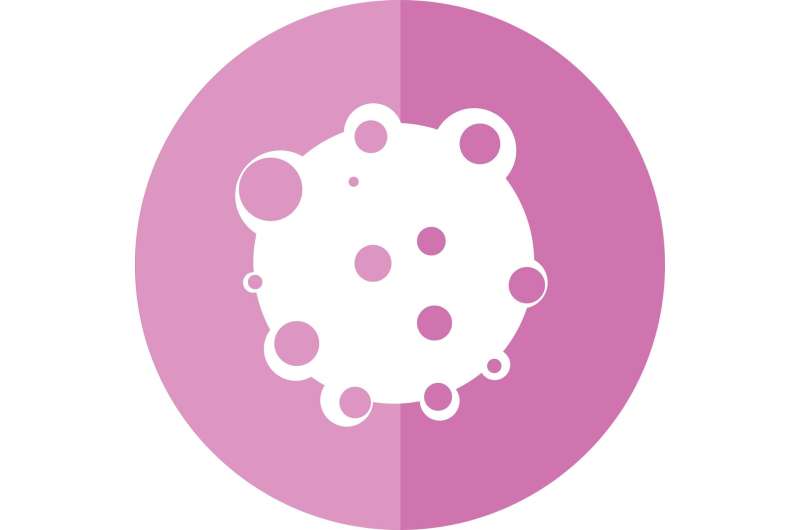This article has been reviewed according to Science X's editorial process and policies. Editors have highlighted the following attributes while ensuring the content's credibility:
fact-checked
peer-reviewed publication
trusted source
proofread
Immunotherapy plus an investigational cancer drug improves anti-tumor effects

An investigational therapy for solid tumors could be especially effective when combined with immunotherapy to target a specific kind of cancer cell, a research team at Duke and Harvard have found.
Led by Lee Zou, Ph.D., chair of Duke's Department of Pharmacology & Cancer Biology, the researchers focused on the way some cancer cells impede normal DNA repair to fuel tumor formation. This phenomenon is known as defective DNA mismatch repair.
Tumors with the trait are vulnerable to immunotherapies, and a recently approved biomarker identifies these cancers, improving the outcomes of many patients. Even still, only half of patients with this type of tumor respond to immunotherapy.
"It is urgently needed to find alternative ways to target these tumors in patients who do not respond to immunotherapy," Zou said.
Reporting in the journal Genes & Development, Zou and colleagues explored a key regulator of the DNA damage response in tumor cells called ATR kinase. When ATR is inhibited in tumor cells with defects in the DNA mismatch repair machinery, DNA damage accumulates, driving cell death and anti-tumor immune responses.
Several ATR kinase inhibitors are currently being tested in clinical trials as a potential cancer therapy. Using cell models and mice, Zou's team found that these investigational ATR kinase inhibitors worked significantly better when combined with immunotherapies.
"The combination therapy works robustly even in tumors that do not respond to immunotherapy alone," Zou said. "Given that we have an FDA-approved biomarker and multiple ATR inhibitors already in advanced clinical trials, the findings from our lab could rapidly improve the use of ATR inhibitors and immunotherapies among patients with these mismatch repair deficient tumors."
In addition to Zou, study authors include Mingchao Wang, Xiaojuan Ran, Wendy Leung, Ajinkya Kawale, Sneha Saxena, Jian Ouyang, Parasvi Patel, Yuting Dong, Tao Yin, Jian Shu, Robert T. Manguso, Li Lan, Xiao-Fan Wang, and Michael S. Lawrence.
More information: Mingchao Wang et al, ATR inhibition induces synthetic lethality in mismatch repair-deficient cells and augments immunotherapy, Genes & Development (2023). DOI: 10.1101/gad.351084.123


















